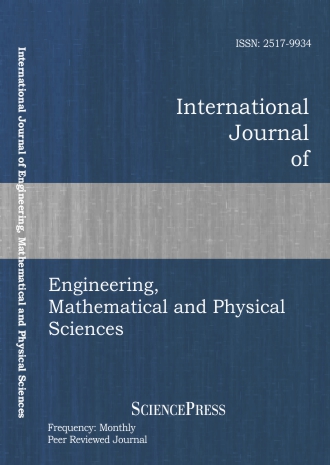
Scholarly
Volume:2, Issue: 1, 2008 Page No: 51 - 59
International Journal of Engineering, Mathematical and Physical Sciences
ISSN: 2517-9934
1574 Downloads
Mathematical Modeling of Gas Turbine Blade Cooling
In contrast to existing methods which do not take into account multiconnectivity in a broad sense of this term, we develop mathematical models and highly effective combination (BIEM and FDM) numerical methods of calculation of stationary and quasistationary temperature field of a profile part of a blade with convective cooling (from the point of view of realization on PC). The theoretical substantiation of these methods is proved by appropriate theorems. For it, converging quadrature processes have been developed and the estimations of errors in the terms of A.Ziqmound continuity modules have been received. For visualization of profiles are used: the method of the least squares with automatic conjecture, device spline, smooth replenishment and neural nets. Boundary conditions of heat exchange are determined from the solution of the corresponding integral equations and empirical relationships. The reliability of designed methods is proved by calculation and experimental investigations heat and hydraulic characteristics of the gas turbine first stage nozzle blade.
Authors:
References:
[1] Pashaev A.M., Sadykhov R.A., Iskenderov M.G., Samedov A.S.,